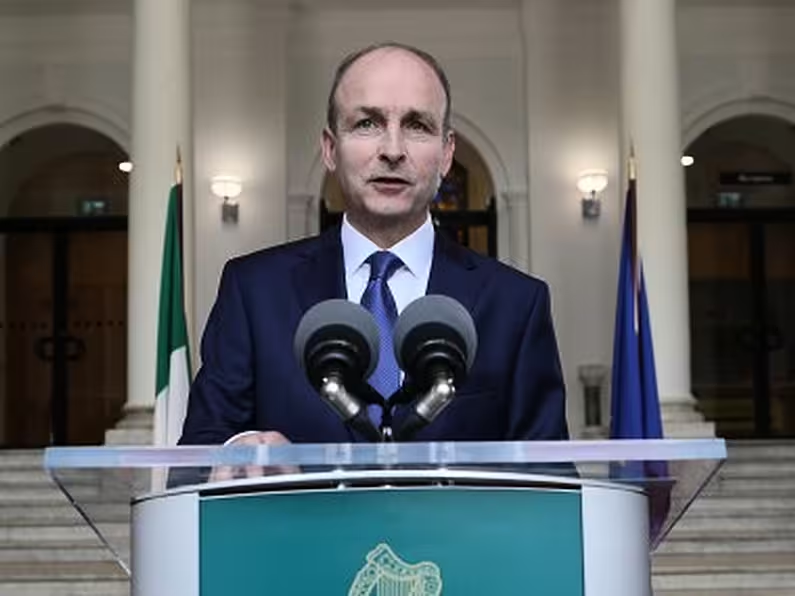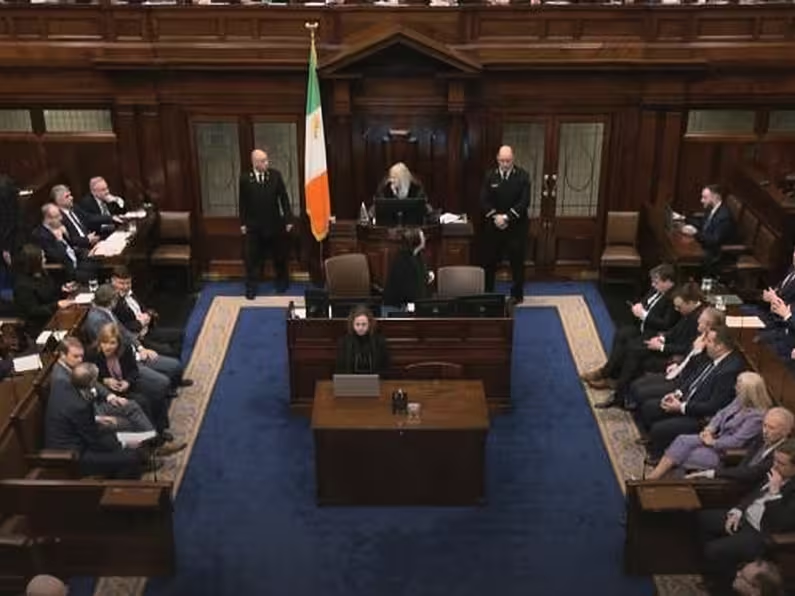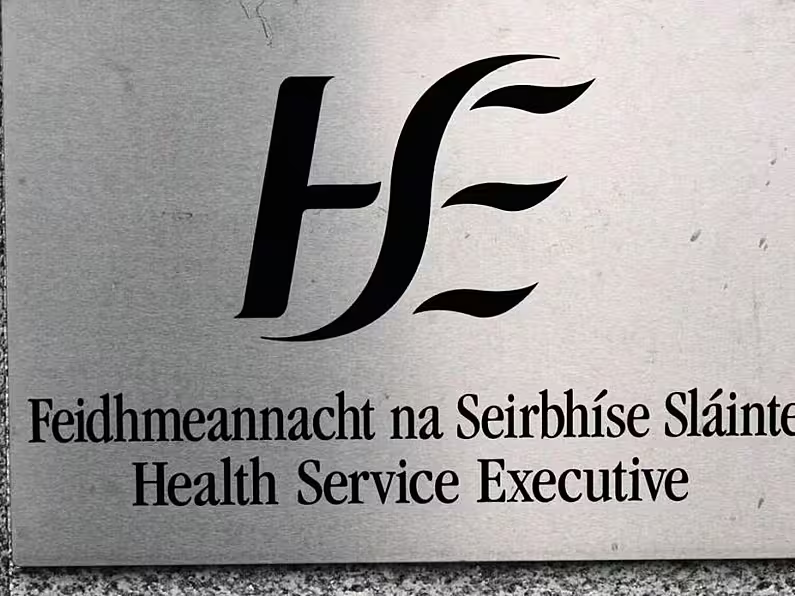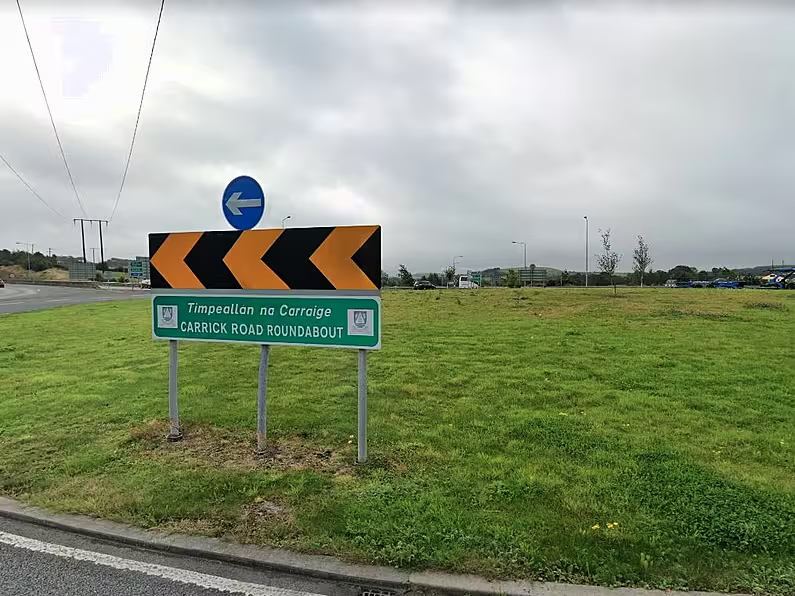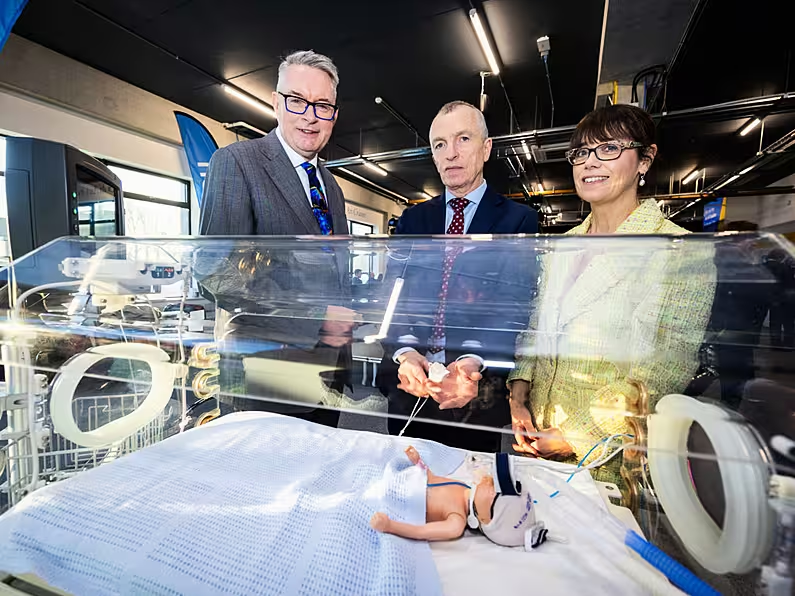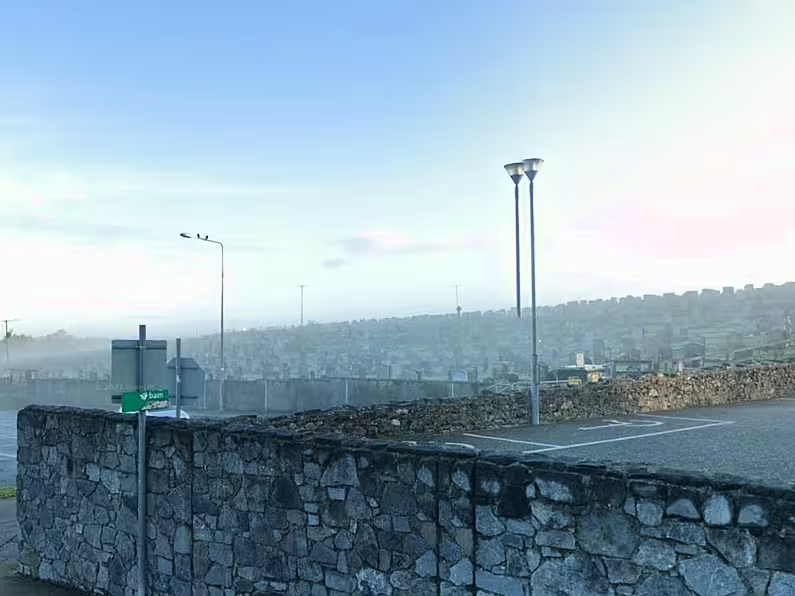By Dominic McGrath, PA
The Covid-19 pandemic has not gone away, Micheál Martin has warned. It comes as concerns have been raised about the planned full reopening of society on October 22nd.
The Taoiseach told the Dáil on Wednesday, a day after the Government delivered a €4.7 billion Budget, that people should not be complacent in the face of rising Covid-19 cases.
Mr Martin said the country had seen an increase in the number of new cases over the last week, as well as an increase in hospital and ICU admissions.
On Tuesday, a further 1,466 cases of Covid-19 were confirmed in Ireland.
The @hpscireland has today been notified of 1,466* confirmed cases of #COVID19.
As of 8am today, 402 #COVID19 patients are hospitalised, of which 73 are in ICU.
— Department of Health (@roinnslainte) October 12, 2021
There are 402 Covid-positive patients in hospital in Ireland, with 73 in intensive care, according to the latest figures.
“The pandemic has not gone away, and it requires all of us to continue to be careful,” Mr Martin said.
He said that it was rare that a health initiative was the most important measure underpinning a government Budget.
Ireland has among the highest rates of vaccine uptake in Europe, with more than 90 per cent of adults fully vaccinated.
“We must still be vigilant and we must avoid complacency,” Mr Martin told TDs.
“There are too many adults still unvaccinated.”
Having clean hands is the best way to stop the spread of harmful germs and slow the spread of COVID-19.
Continue to wash your hands properly and often for at least 20 seconds with warm water and soap or an alcohol hand sanitiser. Learn more: https://t.co/ClXqJwMZai pic.twitter.com/UwUhDp3Otq
— HSE Ireland (@HSELive) October 12, 2021
Offering a defence of the Government’s Budget, Mr Martin said that his ministers had worked to deliver a way out of the pandemic.
“Our focus has been on saving lives and protecting the ability of our economy to restore jobs and return to growth,” said.
However, he said the emergency financial support introduced to tackle Covid-19 could not last forever.
He accused some opposition parties of believing this support could continue indefinitely.
“Such an approach is deeply wrong and based on the false premise that emergency interventions are a model for permanent interventions,” Mr Martin said.
“This level of support is manifestly not sustainable, and we must now move to the next phase, where the finite resources that the Government can deploy are targeted at those who need them most.”
Mr Martin said that achieving stable finances was crucial.
“Should a new or unforeseen crisis hit, or if we encounter another Covid shock, we will be in a better position to respond.”
Evidence
Meanwhile, Minister for Foreign Affairs Simon Coveney has said the removal of remaining restrictions will go ahead on October 22nd unless there was “compelling evidence” not to do so.
Speaking on RTÉ radio’s News at One, Mr Coveney said the Government will listen to advice from the experts before finalising any decision.
Responding to concerns about rising positivity rates, Mr Coveney said chief medical officer Dr Tony Holohan, senior members of the National Public Health Emergency Team (Nphet) and civil servants were assessing the situation in hospitals, ICUs and in the community.
“It is clear that this pandemic is not over. We still have a lot of Covid in the community,” the Minister said.
While the successful vaccination programme had provided a high level of protection, it did not mean that people could let down their guard, he added.



